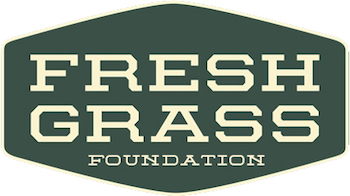Song Premiere: Kronos Quartet & Friends, “Which Side Are You On?” (feat. Lee Knight)

Activist Florence Reece’s stirring labor union song “Which Side Are You On?,” which she wrote in 1931 during the Harlan County War, a violent struggle between miners and mine owners, resonates broadly today as representatives of different political parties claim that their side is the “right one” to be on in fractious times. It’s the perfect song for a time when neighbors hurl invectives—or point guns and shoot—at one another for choosing the “wrong side” to be on. Pete Seeger recorded the song a decade later with the Almanac Singers, and his version has become the most familiar version of it, and it’s most often associated with him. The song asks us if we’re on the side of justice, if we’re on the side of compassion, if we will side with those oppressed by the inequities of certain economic policies. Seeger’s version of the song floats along those undulating clawhammer banjo rolls he made so famous.
San Francisco’s Kronos Quartet (David Harrington, violin; John Sherba, violin; Hank Dutt, viola; Sunny Yang, cello) reimagines “Which Side Are You On?” on their new album Long Time Passing: Kronos Quartet & Friends Celebrate Pete Seeger (out on Smithsonian Folkways on October 9). Sawing violins open the song—the sound is cacophonous, evoking the confusion and chaos of a miner’s strike—before soaring away into a rounding reel that has a hoedown quality to it. The song’s spry tempo mimics the urgency of the question and the demand for an answer that is expressed in action. Folk singer Lee Knight provides the vocals, capturing the ponderous and insistent tone of the minor-chord song. The song ends with a dramatic bowing of violins in mid-note, as if demanding that now is the time to make a decision and creating the space for listeners to choose what side they’re on.
As David Harrington says about the song: “The words of this song were written by Florence Reece in 1931, the night she and her family were terrorized by police in Harlan County, Kentucky. Led by Sheriff J.H. Blair, the deputies entered her home looking for her husband, an organizer of a miners’ union that had gone on strike. The ‘gun thugs,’ as she called them, stormed her house, poking bags of laundry and rifling through closets, terrifying Reece and her seven children. After they left, Reece tore a sheet off the wall calendar and wrote this song.
The melody draws from the Baptist hymn ‘Lay the Lily Low,’ and like many of our most vital songs, takes on new meaning as it rings down the decades. Pete Seeger first sang it with the Almanac Singers in the early 1940s, and Lee Knight sings it here in a rendition that all but demands to open this album. An unwavering supporter of the outdoors and community arts, and a dear friend of ours since 1996, Lee has even shared some performances with Seeger–a connection that seems almost inevitable when you hear the way they both bring warmth and generosity to the most incisive of songs. To have Lee’s presence on this album is to feel constellations emerge.”
In many ways, Kronos Quartet’s version is the perfect marriage of music and message.
The music for Long Time Passing: Kronos Quartet & Friends Celebrate Pete Seeger was commissioned by the FreshGrass Foundation. Kronos premiered the songs in a series of concerts in San Francisco, Barcelona, and other locations, culminating in the world premiere of the full program at the FreshGrass Festival at MASSMoCA in North Adams, Massachusetts, in September 2019.
Long Time Passing: Kronos Quartet & Friends Celebrate Pete Seeger out October 9, is available now for pre-order HERE.




